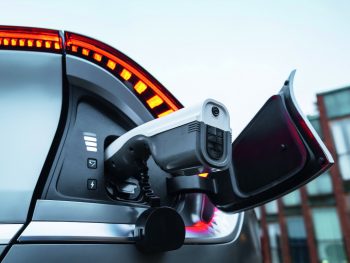Act now to grab EV incentives, fleets urged
Fleets are being urged to take advantage of financial incentives to fast-track their transition to electric vehicles while the subsidies are still available.

Venson says the potential savings by switching to an EV can be huge
The comments come from Venson Automotive Solutions, which says that generous financial support is available to those making the switch and has published a white paper outlining the support available.
Explaining the incentives on offer, Simon Staton, client management director of Venson Automotive Solutions, commented: “The Government is currently offering a £2,500 subsidy on every new electric car [under the Plug-in Car Grant]. This is subject to them emitting less than 50g/km of CO2 and being able to travel at least 70 miles without emitting anything – thus exempting plug-in hybrids and mild-hybrids – as long as the vehicle costs less than £35,000.
“As well as providing a grant to help fleets take on EVs, the Government also subsidises the cost of installing charging points. The Electric Vehicle Homecharge Scheme provides up to £350 towards the cost of a home charging point, while the Workplace Charging Scheme provides up to £350 per plug (up to a maximum of 40) per company.”
Under the terms of the Workplace Charging Scheme, the charge points can only be used by employees – rather than customers – however, the Zero Carbon World charity gives away charging points to businesses for free that can be used by customers.
Fleets in Scotland can receive additional help in the form of grants through Transport Scotland, and it also offers £300 on top of the £350 UK Government grant to help EV owners install home charging points.
As well as the various grants and loans available, EVs attract preferential Benefit-in-Kind rates; in the 2021/22 financial year zero-emission cars are placed in the 1% tax bracket, while from 2022/23 through to 2024/25, they fall into the 2% bracket.
There are other benefits too, including capital allowances/lease rental restrictions and Vehicle Excise Duty.
And Staton continued: “Subsidies and tax benefits aside, EV fleets can also save costs longer term on service, maintenance and repair. According to data from Cap HPI, over three years and 60,000 miles, it costs 23% less to service and maintain an electric vehicle when compared with a petrol variant.”
He added: “It’s fair to say the potential savings by switching to an EV can be huge.”
To download your copy of the Venson ‘Living with your electric vehicle’ guide, click here.












